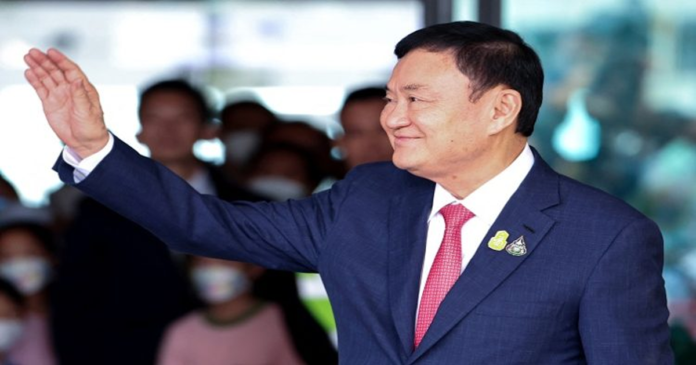After spending about 15 years in exile and being imprisoned on a number of criminal accusations, the former prime minister Thaksin Shinawatra was taken to a hospital overnight.
Thailand’s ex-PM hospitalised after return: According to a statement issued by the Corrections Department, they brought the 74-year-old Thaksin to the police hospital in Bangkok early on Wednesday due to concerns about his blood pressure and low blood oxygen levels.
Sitthi Sutivong, a spokesman for the Corrections Department, stated, “He requires treatment for several illnesses, particularly heart conditions, and the prison hospital lacks the necessary equipment.”
“The doctor advised sending him to the Police hospital to avoid the risk that could endanger his life.”
On Tuesday morning, Thaksin, a millionaire who served as prime minister from 1999 until his overthrow in a coup in 2006, arrived in Bangkok on a private aircraft as his Pheu Thai party prepared to establish a new coalition government with a number of other parties, including those with military ties.
The party’s choice for prime minister, Srettha Thavisin, received parliamentary approval on Tuesday night and royal approval on Wednesday.
Key Developments in Thaksin’s Legal and Political Landscape
The Supreme Court found Thaksin guilty of power abuse and conflict of interest shortly after his return home, resulting in a sentence of eight years in prison.
Srettha’s promotion to the top position had increased rumours that Thaksin, who is still very powerful despite living in exile for many years, had made a deal with his adversaries in the military and political establishment in exchange for his safe return and, maybe, an early release from prison.
There was no agreement, according to Pheu Thai and Thaksin. Previously, a minister in the departing administration said that Thaksin’s advanced age might make him eligible for a royal pardon and better care.
Pheu Thai, the party leading the new government, has excluded the progressive Move Forward Party (MFP), which secured the majority of seats in the election based on its promises of significant reforms, including changes to royal defamation laws.
The military, which controls the upper chamber, prevented Pita Limjaroenrat, the leader of the group, from becoming prime minister, a position that required their approval.

